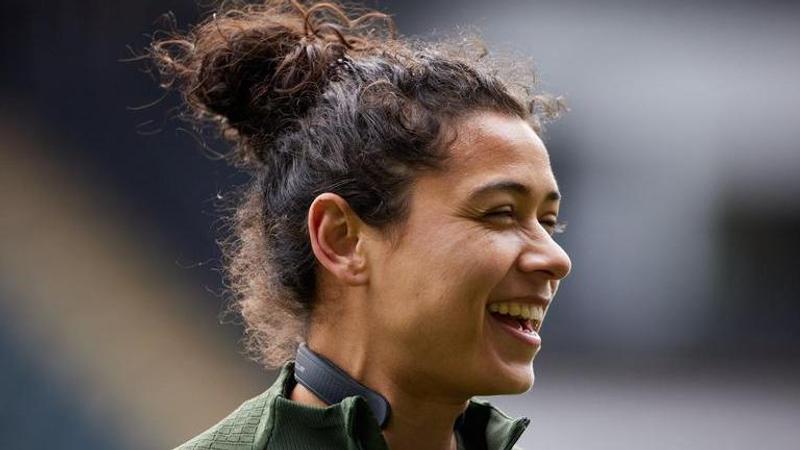Published 08:49 IST, July 25th 2023
Know all about 'anti-concussion Q-Collar' that is worn by players at the Women's World Cup
The Q-Collar, a silicone device designed to prevent brain injuries in contact sports, is being worn by female football players during the Women's World Cup.

Sharp viewers may have spotted certain footballers, like Canadian international Quinn and Costa Rican standout Rocky Rodriguez, wearing an odd piece of gear around their necks during this year's FIFA Women's World Cup. Theanti-concussion Q-Collar is a horseshoe-shaped collar of silicone that seeks to shield the brain from the inside, particularly intended to address the occurrence of brain injuries in contact sports.
3 things you need to know
- FIFA Women's World Cup 2023 is taking place in Australia and New Zealand
- The USA are the defending champions of the FIFA Women's World Cup
- The tournament was started in 1991
The Need for Brain Injury Protection in Football
(Quinn in action for Canada, Image-AP)
The significance of protecting players from potential injuries has never been higher as the responsibilities for the Women's World Cup continue to increase. A research released in The Journal of the American Medical Association just before the tournament's start indicated that the risk of cognitive impairment rose with the cumulative heading frequency among more than 450 former professional male footballers in the UK. This research emphasises the need to taking proactive efforts to limit the incidence of brain injury in sports.
Gender Differences in Brain Injuries
While prior study has emphasised the dangers of brain injuries in football, it has also revealed major gender differences. Female football players are far more vulnerable to brain injuries than men are. According to the British Journal of Sports Medicine, women experience 1.5 concussions for every 1,000 hours of playing or practising football, compared to 1.0 for males. Concussions from ball-to-head contact are also more likely in women than in men.
The causes for females' increased sensitivity remain unknown, with numerous possibilities proposed, including changes in neck muscles, metabolisms, and hormone cycles.
The Anti-concussion Q-Collar: A Promising Solution
Dr. David Smith, a former internist, designed the anti-concussion Q-Collar, which is gaining popularity as an innovative way to reduce the rate of brain injuries. The Q-Collar seeks to limit the impact of collisions and the possibility of brain injuries in football players by avoiding excessive brain movement within the skull.
While the effectiveness of the Q-Collar is still being debated, a growing number of collegiate and professional athletes in the United States have begun to use it as a protective precaution. Because female athletes are disproportionately impacted by injuries, as seen by the increased rate of ACL tears in women's football, the Q-Collar might be a game changer in boosting player safety and welfare.
With so much at risk during the 2023 Women's World Cup, innovative technology such as the Q-Collar may become more common as footballers prioritise their health while performing at their highest levels.
Updated 08:51 IST, July 25th 2023





